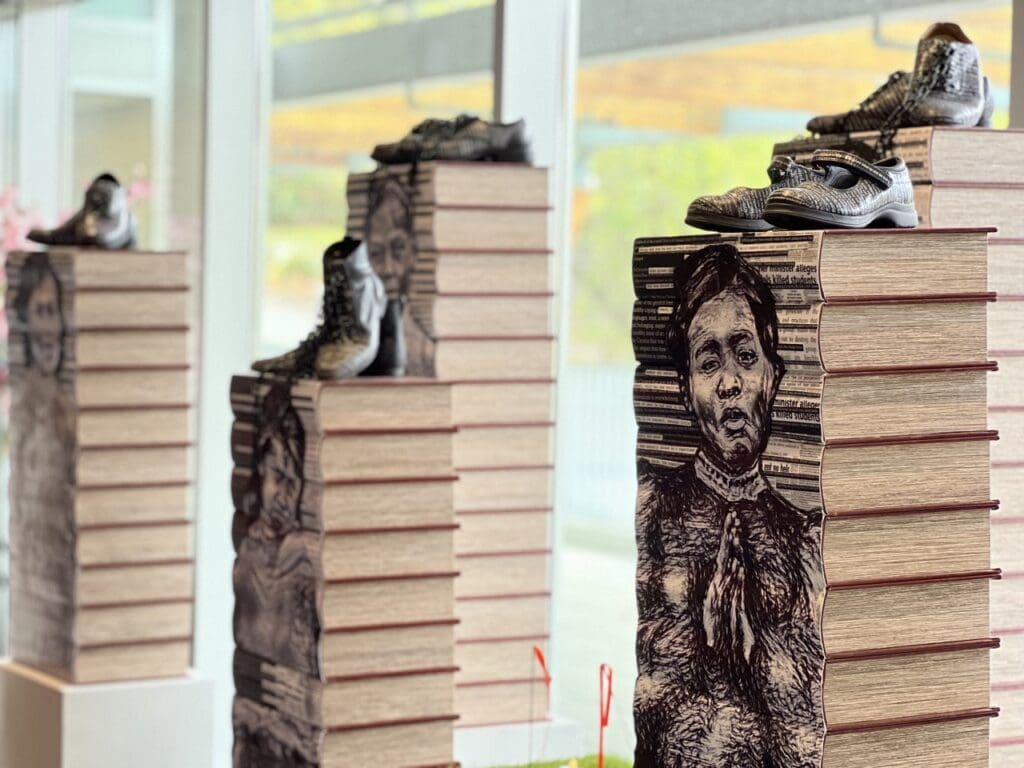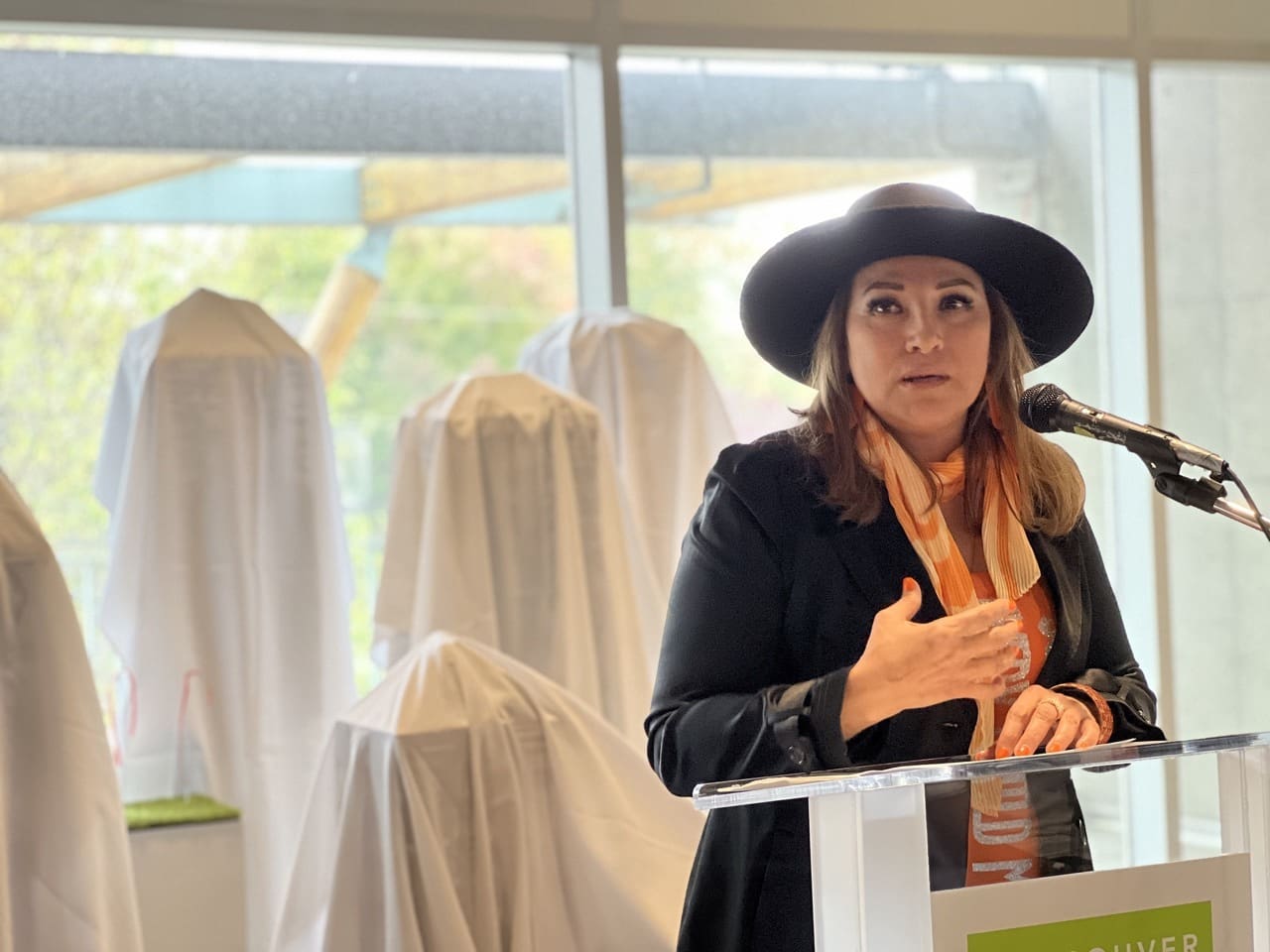To mark this year’s National Day for Truth and Reconciliation, Vancouver Community College (VCC) unveiled an art installation to honour the lives of children who perished in the residential school system in Canada.

The installation, created by Haida artist, Tamara Bell, is currently on display at the college’s Broadway campus public event space, but is modular so that it can move between the Broadway and Downtown campuses. According to the artist, the permanent installation features columns of books arranged in a circle overlaid with a photograph of an Indigenous child who attended residential school. Testimonies of the survivors and their descriptions of their painful experiences are written on the outer surface of the shoes. The shoes are tied with chains in place of laces, representing the bondage subjected upon each child who was forced to attend these schools.
“During the course of a year, this piece was created to honour Residential School survivors and acknowledge the ones that perished,” says Tamara. “I want to thank VCC for embarking on the journey of reconciliation through true action.”
Tamara is the artist behind the installation of 215 pairs of children’s shoes on the steps of the Vancouver Art Gallery following Tk’emlups te Secwepemc’s announcement of suspected unmarked graves of Indigenous children discovered at the former Kamloops Indian Residential School in May 2021. She is also an award-winning director, producer and scriptwriter. Her work is currently on display at the Bill Reid Gallery as part of the Bright Futures exhibit which showcases contemporary emerging and established Indigenous artists of the Northwest Coast.
VCC’s work in Indigenization and reconciliation is rooted in hearing and understanding historical truths, acknowledging past and persisting racism, including and embracing Indigenous knowledge and ways of being, and a commitment to improving educational and career outcomes for Indigenous people in B.C. This work is embedded in all levels of the college through its Strategic Innovation Plan and is paramount to the plan—and ultimately—the college’s success.
“At VCC, our commitment to Truth and Reconciliation goes beyond words,” says Ajay Patel, VCC President and CEO. “We are actively decolonizing and Indigenizing our teaching methods, learning environments, and physical campus spaces. We recognize that this journey is neither easy nor comfortable, but it is essential. We are honoured to have an Indigenous artist of Tamara’s caliber create a powerful piece of art that our entire college community can view and engage in reflection and dialogue. It’s an important reminder that each of us has a role to play in advancing reconciliation.”
VCC campuses are located on the traditional unceded territories of the xʷməθkʷəy̓əm (Musqueam), Sḵwx̱wú7mesh (Squamish), and səlilwətaɬ (Tsleil-Waututh) peoples. —Vita Daily

Be the first to comment